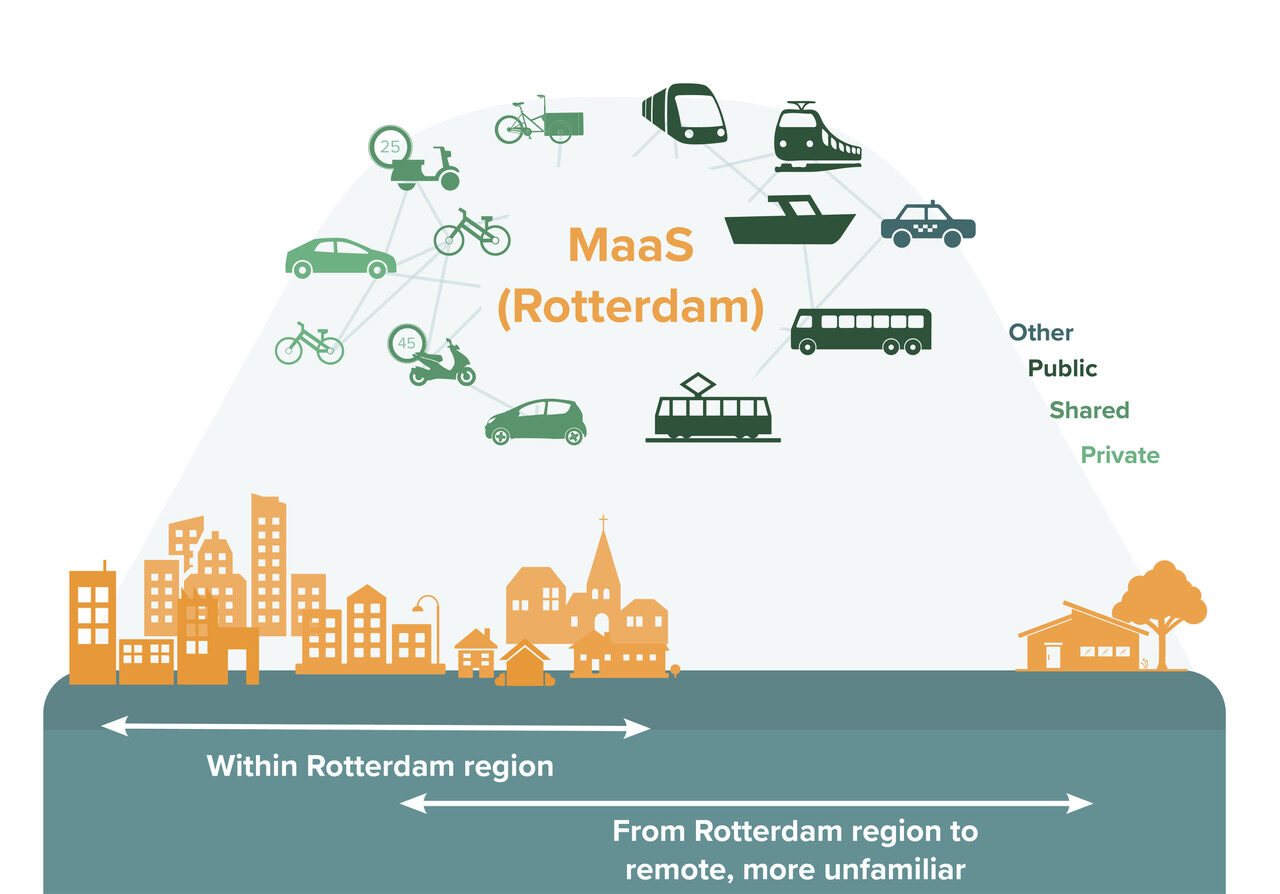A Mobility as a Service platform supporting public transport travellers
Mar 2020 - ongoing
in door-to-door trips within their own familiar region of Rotterdam as well as to more unfamiliar, remote destinations.

Over the years, usage of personal transportation has risen, causing an increase in traffic jams and lack of parking space in and around cities. Besides, pressure grows on public transport networks, creating (societal) challenges to continue to fulfil travellers’ needs and to remain affordable. On top of that, the world is getting more and more digital, and a platform economy is emerging. This trend is also reflected in the rise of shared mobility providers.
Mobility as a Service (MaaS) creates opportunities for cities to overcome these challenges by providing seamless, personalised and on-demand multimodal mobility. By integrating public, shared and private transport modalities in one (eco)system, travellers can conveniently travel from door-to-door by a range of different mobility providers. For this to become a success, the current way mobility in the Netherlands is organised and offered has to change. But also, travellers need to adopt the use of this system. An ecosystem of mobility has to be developed, in which many stakeholders have to work together. As these all have different needs and values, this process comes with challenges.
RET and 9292 are both players in the current mobility market and have to be part of these MaaS developments to remain important and interesting. Their challenge is in the integration of services in one platform as well as preventing the cannibalisation of their own core business.
Current developments regarding integration of MaaS is mainly focused around developing the (eco)system. This process feels pushed by technology. In order to seduce travellers to adopt the service, the different individual needs and wishes of travellers should truly be addressed. Therefore, this graduation project puts the travellers central, but also takes on a multi-stakeholder perspective.
The goal of this project is to design a Mobility as a Service concept that supports and addresses the needs and wishes of public transport travellers during door-to-door trips within their own familiar region of Rotterdam as well as trips to more unfamiliar, remote destinations. The aimed deliverable is the design of a few important touchpoints within such envisioned door-to-door MaaS journey.
Name: Sara Schippers
Master: Design for Interaction
Supervisory Team: Dr. ir. Suzanne Hiemstra-van Mastrigt, Dr. Ir. Gert Pasman
Partners: RET en Reisinformatiegroep 9292
Graduation project